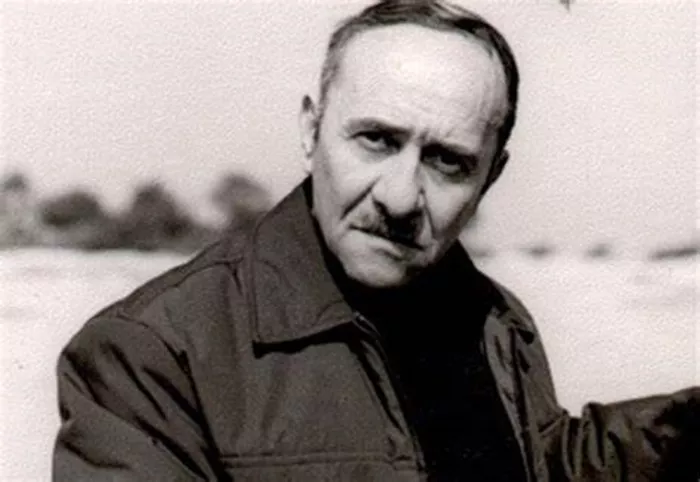In the rich landscape of 20th century Greek poets, Dimitris Papaditsas holds a distinctive place. Emerging during a period of profound social and cultural change, this Greek poet contributed significantly to the evolution of modern Greek poetry. His work reflects the deep anxieties and hopes of a country grappling with war, occupation, and the search for identity. Understanding Papaditsas and his poetry offers valuable insight into the broader currents that shaped Greek poetry in the 20th century.
Historical and Cultural Context of 20th Century Greek Poetry
To appreciate Dimitris Papaditsas’s poetry, it is essential first to understand the historical and cultural backdrop against which he wrote. The 20th century was a tumultuous era for Greece. From the Balkan Wars to the two World Wars, the Greek Civil War, and political upheavals, the century was marked by struggle and transformation. Greek poetry responded to these changes by evolving in form and theme, moving away from the strict classical models toward more experimental and expressive styles.
During this century, Greek poets explored themes of identity, exile, love, nature, and political oppression. This period saw the rise of both lyric and narrative poetry, blending traditional and modernist influences. Many poets wrestled with the trauma of war and displacement while searching for a voice that could articulate the complexities of modern Greek life.
The Life and Career of Dimitris Papaditsas
Born in 1922, Dimitris Papaditsas lived through some of the most turbulent decades in modern Greek history. His early experiences shaped his poetic voice, which is marked by sensitivity, introspection, and a deep engagement with the human condition. Papaditsas studied medicine, a profession that gave him a unique perspective on life, death, and suffering — themes that frequently surface in his poetry.
Papaditsas began publishing his poetry in the 1940s, during World War II and the Nazi occupation of Greece. His work reflects a profound awareness of the horrors and absurdities of war. At the same time, his poetry often carries a lyrical beauty and a philosophical depth that sets him apart from many of his contemporaries.
Themes and Style in Papaditsas’s Poetry
Papaditsas’s poetry is characterized by a careful balance of emotional intensity and intellectual rigor. His language is simple yet powerful, making his poems accessible but deeply moving. Common themes in his work include the fragility of life, the presence of death, and the search for meaning in a chaotic world.
Unlike some 20th century Greek poets who favored radical formal innovation, Papaditsas often retained a traditional poetic structure. However, he infused this structure with a modern sensibility, blending classical Greek influences with contemporary existential questions. This mixture made his poetry resonate with readers who sought both beauty and depth.
Nature is another recurring motif in his work. Papaditsas uses natural imagery to explore human emotions and philosophical ideas. His poems frequently contrast the eternal calm of nature with the fleeting, often painful experiences of human life.
Comparison with Contemporaries
Dimitris Papaditsas was part of a generation of Greek poets who responded in varied ways to the social and political upheavals of their time. Comparing him to contemporaries such as George Seferis, Odysseas Elytis, and Yannis Ritsos reveals both similarities and differences.
George Seferis, for example, was known for his modernist style and deep engagement with Greek history and mythology. Like Papaditsas, Seferis explored themes of identity and exile but employed a more experimental approach to language and form. Seferis’s poetry is often marked by a symbolic and sometimes elusive quality, while Papaditsas’s work tends to be more direct and emotionally grounded.
Odysseas Elytis, another prominent 20th century Greek poet, is celebrated for his vivid imagery and celebration of Greek natural beauty and light. Elytis’s poetry is more optimistic and celebratory than Papaditsas’s, often emphasizing the joy of life despite adversity.
Yannis Ritsos, a contemporary and close in age to Papaditsas, shared with him a profound concern for social justice and human suffering. Ritsos’s poetry is often more politically explicit and intense, while Papaditsas’s approach is subtler, focusing more on the philosophical and existential dimensions of suffering.
Contribution to Greek Poetry and Legacy
Papaditsas’s work contributed to Greek poetry by bridging classical poetic traditions and modern existential concerns. His emphasis on clarity, emotional depth, and philosophical reflection enriched 20th century Greek poetry and influenced younger poets who sought to explore similar themes with a balance of tradition and innovation.
His poetry is still studied in Greek literature courses and admired for its craftsmanship and emotional honesty. Papaditsas’s legacy lies in his ability to give voice to the struggles of his generation while also addressing universal human questions.
The Place of Papaditsas Among 20th Century Greek Poets
20th century Greek poets represent a broad and diverse field. Papaditsas stands among them as a poet who maintained respect for tradition while addressing the challenges of modernity. He is a reminder that Greek poetry in the 20th century was not a monolith but a rich tapestry of voices and styles.
His work complements the grand narrative of Greek poetry’s evolution, demonstrating that simplicity and depth can coexist in poetry. For readers and scholars interested in Greek poetry, Papaditsas offers a valuable perspective on the human condition seen through the eyes of a Greek poet shaped by history and culture.
Conclusion
Dimitris Papaditsas remains a significant figure among 20th century Greek poets. His work captures the spirit of a nation and a century marked by upheaval and transformation. Through simple yet profound language, he explored themes of life, death, and meaning that resonate beyond Greece and his era.
Studying Papaditsas alongside his contemporaries enriches our understanding of Greek poetry and its development in the 20th century. His poetry invites us to reflect on our own lives and the world around us, reminding us of the power of words to endure and to heal.

